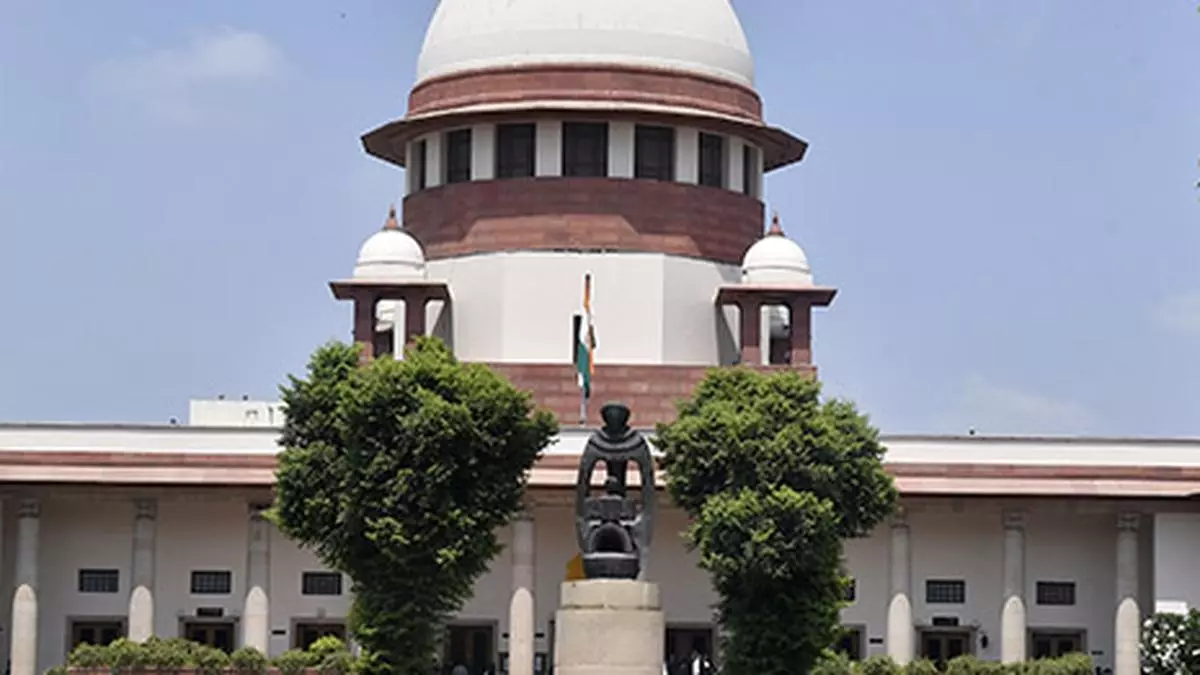SC restrains activities at Doloo tea estate for airport, slams NGT’s inaction
The Supreme Court on Monday restrained authorities from carrying out any activity at the Doloo tea estate in Assam’s Cachar district where a greenfield airport is proposed to be constructed.
Noting that over 41 lakh tea bushes have been uprooted, a bench headed by Chief Justice D Y Chandrachud said the authorities in the present case have acted in violation of the Environment Impact Assessment Notification, 2006 by carrying out extensive clearance at the site without any environmental approval.
The top court also criticised the National Green Tribunal for “complete abdication of its duty” and said it was the first and foremost duty of the tribunal to verify the authenticity of the grievance of the petitioners before dismissing their plea.
“We hold that there was complete abdication of duty by the National Green Tribunal. As an expert body, which has been formed under statute enacted by the Parliament in the interest of preservation of environment, it was first and foremost duty of tribunal to verify the authenticity of the grievance of appellants and instead it just dismissed the OA (original application) saying no environmental clearance has been issued.
“From the material placed on record, we are of the view that authorities in the present case have acted in violation of the EIA notification by carrying out extensive clearance at the site in absence of environmental clearance,” the bench, also comprising Justices J B Pardiwala and Manoj Misra, said.
The apex court said the decision where the airport should be is a matter of policy but when the law prescribes specific norms for carrying out activities requiring environmental clearance, the provision of law has to be complied with.
“We direct that no activity shall be carried out in breach of the EIA notification, 2006,” the bench said after perusing the report filed by the secretary of the District Legal Services Authority of Cachar.
Solicitor General Tushar Mehta, appearing for the Assam government, opposed the locus standi of the petitioners and said action should be taken against them.
The top court was hearing an appeal filed by Tapas Guha and others against a National Green Tribunal (NGT) order rejecting their plea against the construction of the proposed airport on “specious ground” that it was premature.
The plea had sought a direction to cease further action related to the construction of the airport till a comprehensive Environmental Impact Assessment (EIA) is conducted.
The top court had on April 8 directed the Assam government to maintain status quo at the Doloo tea estate.
On January 25, the NGT had dismissed the plea by Guha and others on the ground that the EIA report was awaited and environmental clearance for the project had not been granted.
“Counsel for the applicants has drawn our attention to the Government of India, Ministry of Civil Aviation, notification dated May 16, 2008, particularly column under the head ‘Environment Clearances’ and submits that even for grant of Site Clearance and In-principle approvals, Environmental Clearance is necessary which can only be done once the EIA assessment study is done.
“In our opinion, mere inclusion of a clause under the head ‘Environment Clearances’ in a form of the said notification does not deem the same to be mandatory for purposes of EIA assessment study,” the NGT had said.
The plea in the NGT had sought a direction to cease further action at the Doloo tea estate till a comprehensive EIA has been conducted and to restore the estate to its original condition as of May 12, 2022 by replanting uprooted tea bushes, felled shade trees and rectify the damage caused to the landscape and ecosystem.
The Airports Authority of India has submitted an application under the Greenfield Airports (GFA) Policy, 2008 to the Ministry of Civil Aviation (MoCA) for grant of site clearance for developing the airport.
The MoCA launched the Regional Connectivity Scheme (RCS) — UDAN (Ude Desh ka Aam Nagrik) — on October 21, 2016, to stimulate regional air connectivity including in the northeastern region, and make air travel affordable for the masses.
